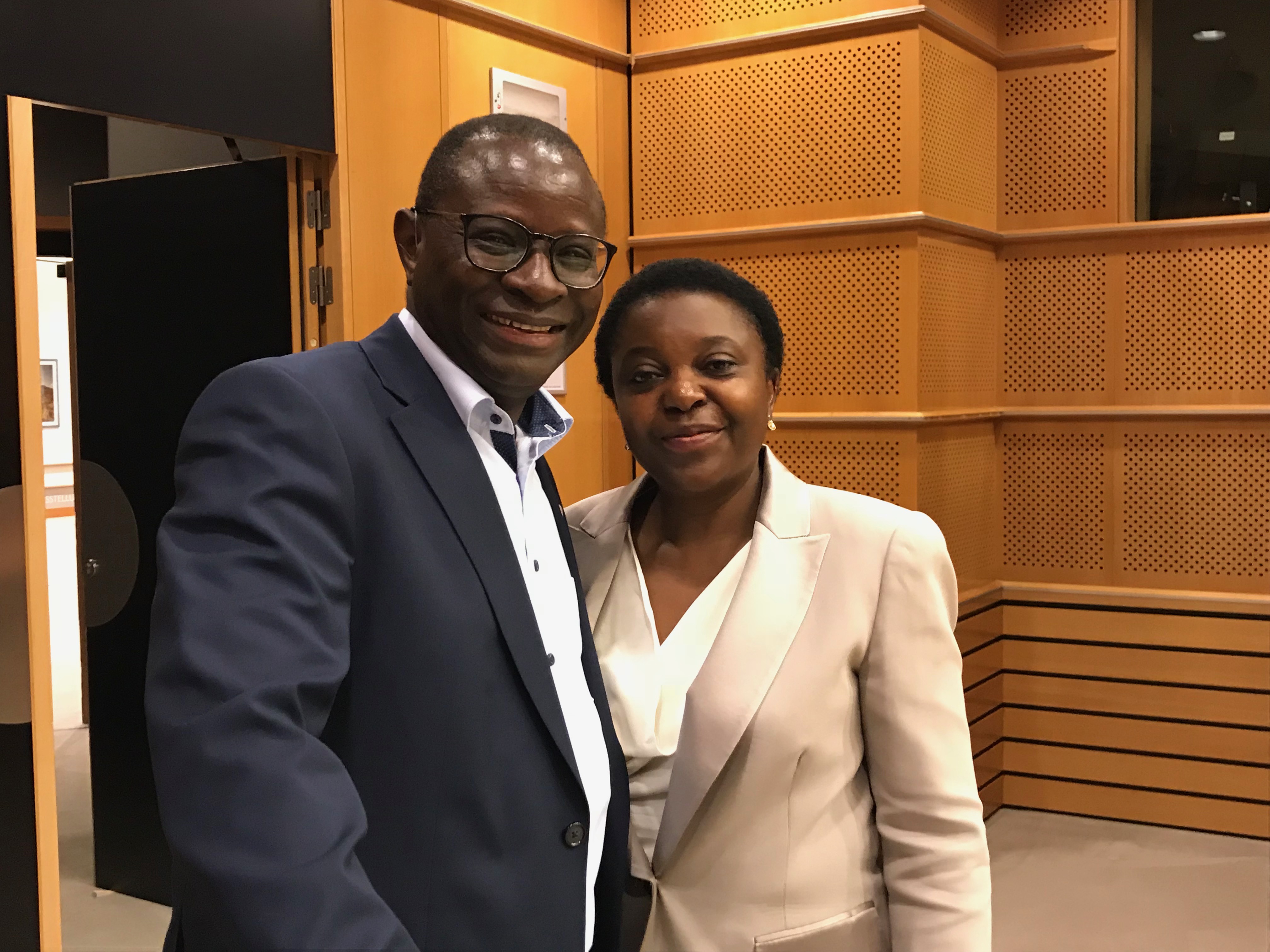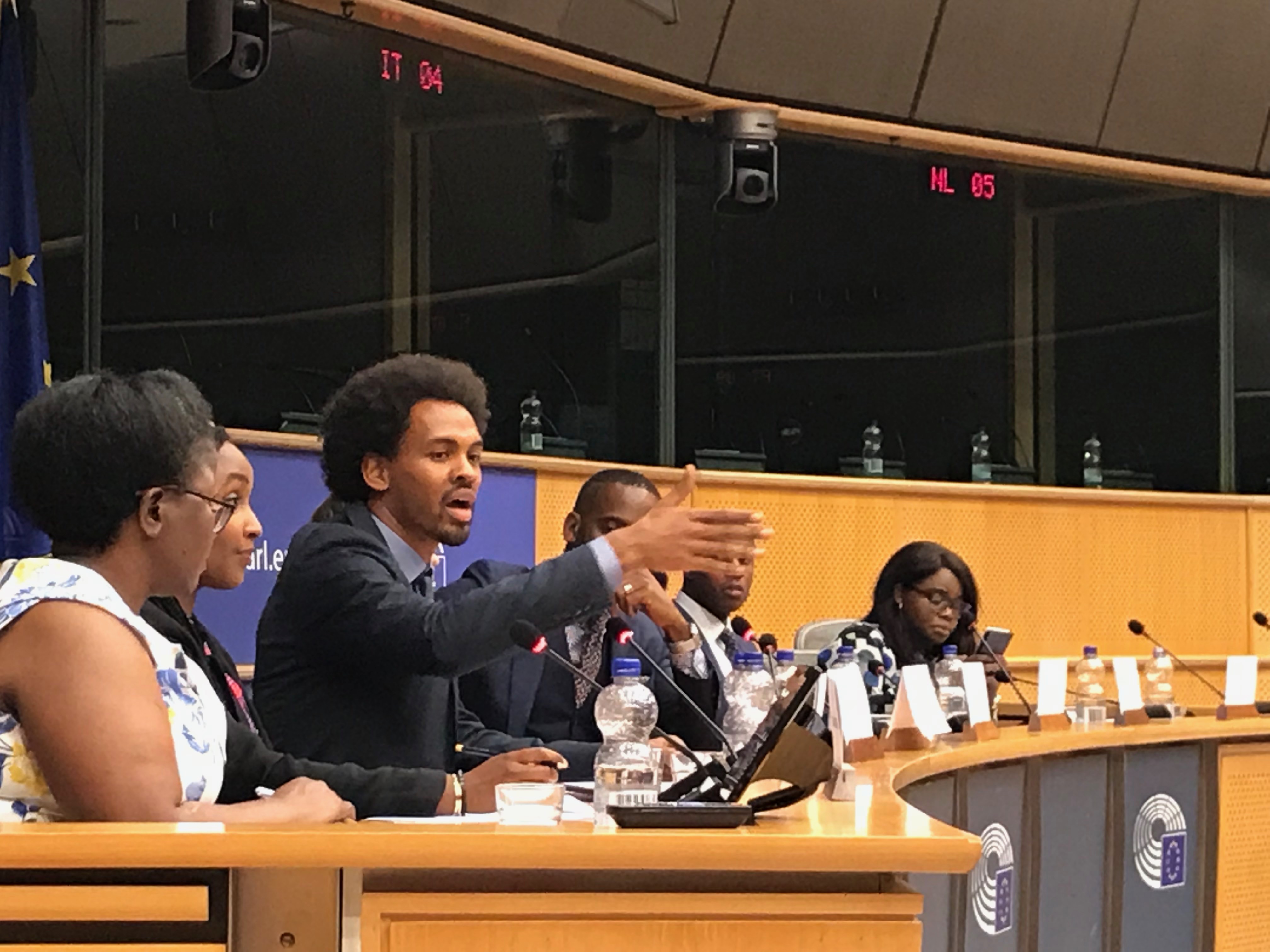On May 19, 2018, African-American Meghan Markle wed Prince Harry at St. George’s Chapel in Windsor, England.
Black culture was celebrated throughout the event: Queen Elizabeth II’s first female black chaplain offered prayers, a black British choir sang African-American Ben E. King’s “Stand By Me,” and Chicago-based African-American Episcopalian bishop Michael Curry quoted civil rights icon Martin Luther King Jr. during his wedding address, preaching on “the power of love.”
However, the public discussion leading up to the wedding was riddled with racial stereotyping and prejudice spurred by Markle’s biracial identity—her father is white and her mother is black. British news outlets were heavily criticized for racial insensitivity after commenting on Markle’s “unconventional family,” and using phrases like “unlikely pairing” to further differentiate between the prince and Markle.
Unfortunately, racial bias is not confined to Markle—now Duchess of Sussex—but instead extends to many black people in Europe. According to four comprehensive reports from the Organization for Security and Cooperation in Europe, the European Commission, the EU Agency for Fundamental Rights, and Open Society Foundations, a significant percentage of the estimated 15–20 million people of African descent living in Europe have experienced high rates of prejudice and discrimination.
 Just days before the wedding, racial equality advocates from across Europe gathered in Brussels to address this problem. At the inaugural People of African Descent Week (PADWEEK), organized by the European Parliament Anti-Racism and Diversity Intergroup, Transatlantic Minority Political Leadership Conference, Each One Teach One, and the European Network Against Racism, more than 100 black European activists discussed current racial injustices in Europe and recommended ways for European leaders to respond to increasing hate and discrimination across the region.
Just days before the wedding, racial equality advocates from across Europe gathered in Brussels to address this problem. At the inaugural People of African Descent Week (PADWEEK), organized by the European Parliament Anti-Racism and Diversity Intergroup, Transatlantic Minority Political Leadership Conference, Each One Teach One, and the European Network Against Racism, more than 100 black European activists discussed current racial injustices in Europe and recommended ways for European leaders to respond to increasing hate and discrimination across the region.
Attendees included black policymakers, business leaders, and human rights activists from across Europe. Helsinki Commissioners Rep. Alcee Hastings (FL-20) and Rep. Gwen Moore (WI-04) were two of nine honorary hosts.
“Whether in America or Europe, we must all do more to uphold the democratic values of our nations,” Commissioner Hastings said in a statement. “Skin color should not determine one’s access to rights, protections, and opportunities in a democracy.”
Though the agenda was full with discussions ranging from BREXIT to migration to Africa-EU relations, PADWEEK addressed issues of racial discrimination head-on and introduced new ways to find solutions. It called for change to a well-ingrained European system that has left black people by the wayside for centuries.
Race and legal issues were raised repeatedly in discussions. German legal expert and human rights activist Thomas Ndindah called for justice for Oury Jalloh, an asylum seeker who burned to death in a German police cell while handcuffed to a mattress in 2005.
Participants also questione d a so-called “Marshall Plan” for Africa, the name of which alludes to the American-European economic plan that helped rebuild Western Europe following World War II. Participants voiced concerns that African countries were not being viewed as equal partners in the negotiations or consulted on the name.
d a so-called “Marshall Plan” for Africa, the name of which alludes to the American-European economic plan that helped rebuild Western Europe following World War II. Participants voiced concerns that African countries were not being viewed as equal partners in the negotiations or consulted on the name.
Instead, many attendees viewed the plan as Europeans paying African governments to keep unwanted African migrants from reaching Europe, while at the same time purposefully attracting Africa’s highly skilled professionals to Europe. This raised one question: how would Africa benefit from this “Marshall Plan” for Africa if Africa’s brightest and best were contributing to countries elsewhere?
The week ended with a list of recommendations from participants and a passionate speech by Mirielle Fanon-Mendes-France, daughter of twentieth century philosopher Frantz Fanon. She called on European institutions to deliver on longstanding promises to address the ongoing impact of colonialism and slavery on the present-day well-being of black Europeans.
Recommendations from PADWEEK included:
- Recognizing the history of past injustices by adopting a European Black History Month and a Remembrance Day for victims of colonialism and enslavement
- Supporting empowerment and anti-discrimination initiatives by funding black-led civil and human rights organizations
- Adopting legislation in the European Parliament on an EU Framework for National Strategies for Equality and the Inclusion of People of African Descent in Europe








